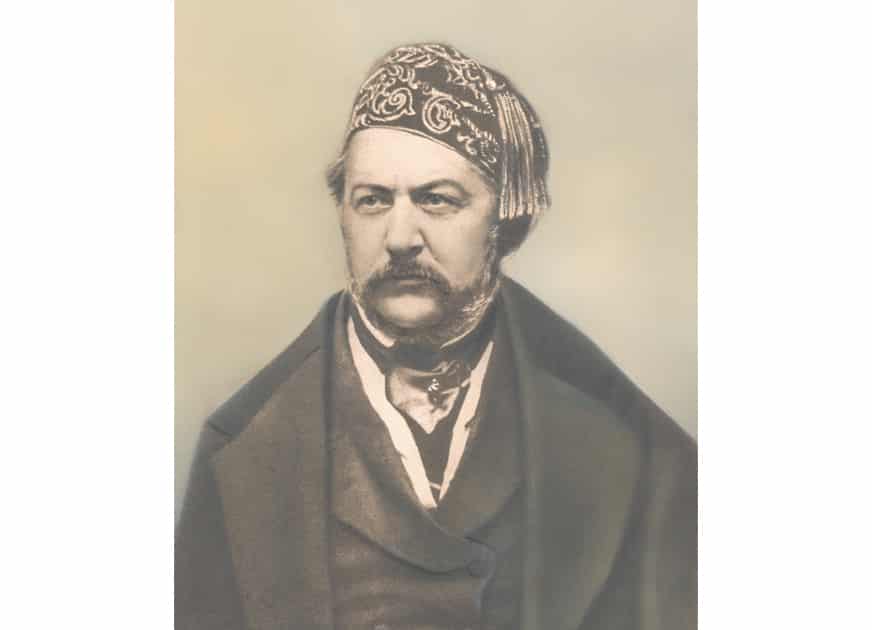
The Russian composer Mikhail Glinka featured here last week as the man who composed the music that, for a brief period after the collapse of communism, served as the national anthem of Russia. His Patrioticcheskaya Pesnya (Patriotic Song) began life as a piano piece and it’s worth noting that one of the influences on the young Glinka was none other than that Irish master of the instrument, John Field.
The name of Mikhail Glinka, born in 1804, is revered in Russia, for he’s the one credited with forging the path through the forest of foreign influence. He showed the way and Borodin, Mussorgsky, and Rimsky-Korsakov, not to mention Tchaikovsky, followed.
In the palaces, they spoke French. In the salons, they played German music. Western European culture was everywhere. Glinka proved there were other possibilities.
It’s not stretching the point to say that he was there at the birth of a Russian tradition in classical music. That Boris Yeltsin should have turned to Glinka’s creation when he sought a replacement for the anthem commissioned by Stalin is proof positive.
John Field’s influence on the young Glinka may have been minimal – some say he gave him only one lesson at the keyboard – but it was also seminal.
Field, from a base in London, had been travelling through Europe as a glorified piano salesman – he’d play the instruments his boss was hoping to sell – when they ended up in St Petersburg.
And there he stayed, which is how the young Mikhail came to be a pupil on his piano stool. He was good enough to perform a Hummel Piano Concerto at his graduation from school.
The Glinkas were a conventional middle-class household, so a career path was clearly mapped out. Mikhail would join the civil service.
It wasn’t till he was in his mid-20s that he came to realise that it would be music that would fulfil him. He began lessons in composition, then moved to Milan. Opera became his passion.
There, he attended two significant premieres – Donizetti’s Anna Bolena and Bellini’s La Sonnambula. He was discovering how a culture could present itself.
Back in St Petersburg, he set about creating music in a unique national style. Though you can trace the Italian influence in A Life for the Tsar, the opera that resulted, it stands out as an original in a distinctively Russian idiom.
Its first performance in 1836 was well received. Soon after, Glinka was appointed Imperial Kapellmeister, the title itself indicating how much Russian culture at the time was influenced by the West, but also significantly indicating just how important a position the composer had in that arena.
His more famous opera Ruslan and Lyudmila, followed in 1842. Based on a poem by Pushkin, it sits like Romeo and Juliet in the Russian canon. Best known now only for its stirring overture, it had a telling effect at the time.
It stood out in the way its music laid bare its heritage – Russia, and the tunes and the rhythms that sprung from there.
The others took their cue. The Mighty Bunch – five St Petersburg-base composers, among them Borodin, Mussorgsky, and Rimsky-Korsakov – ran with this nationalistic musical agenda.
Elsewhere, Tchaikovsky was drawing on indigenous music for his inspiration. A Russian tradition had been born. And Mikhail Glinka was there at the very beginning.
Comments
Add comment